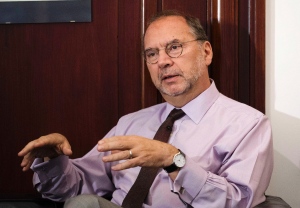CANADIAN PRESS March 25, 2015
One of the co-discoverers of the Ebola virus and a leading Canadian stem cell researcher are among this year's winners of the prestigious Canada Gairdner Awards.
 Dr. Peter Piot is the recipient of the Canada Gairdner Global Health Award, recognizing his work on the discovery of the Ebola virus in 1976 and his leadership in the global response to the HIV-AIDS epidemic.
Dr. Peter Piot is the recipient of the Canada Gairdner Global Health Award, recognizing his work on the discovery of the Ebola virus in 1976 and his leadership in the global response to the HIV-AIDS epidemic.
Dr. Janet Rossant, chief of research at Toronto's Hospital for Sick Children, is the recipient of the 2015 Canada Gairdner Wightman Award, which honours a Canadian who has demonstrated outstanding leadership in medicine and medical science.
Five international scientists are also being honoured with Canada Gairdner Awards, two each from the United States and Japan and one from Switzerland....
Dr. Peter Piot won the 2015 Canada Gairdner Global Health Award in recognition of his work on the discovery of the Ebola virus in 1976 and his leadership in the global response to the HIV-AIDS epidemic. (David Azia/Associated Press)
Red complete story.
Recent Comments